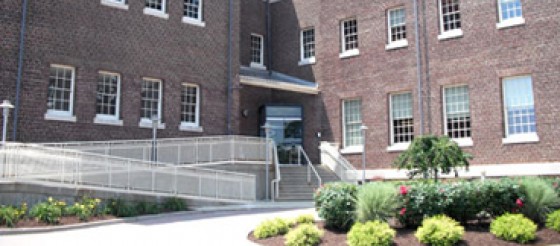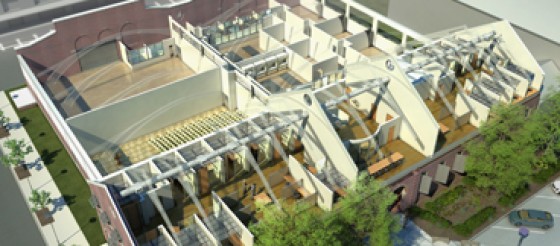For decades in the early part of the 20th century, boosters referred to Philadelphia as the Workshop of the World. Once a world leader in industrial production, from the Crane shipyard to the manufacturing of Stetson hats, Philadelphia was recognized for its innovation in production.
Now, our City of Brotherly Love is being recognized for innovation in energy efficiency. Enter, the Energy Efficient Buildings (EEB) Hub, located at the Navy Yard. It was established in 2011 by the U.S. Department of Energy as an Energy-Regional Innovation cluster.
“It’s this really unique playground for us,” said Christine Knapp of EEB.
According to the folks at EEB, Philadelphia’s energy expenditures are 29 percent higher than the national average. Their goal is to reduce energy use in the commercial buildings sector by 20 percent by 2020. To accomplish this, they’ve concentrated their efforts on accelerating the adoption of advanced energy retrofits to average sized buildings. That means applying new green/sustainable technologies to old buildings.

Building 101
They’ll lead by example with two demonstration projects. Building 101 in the Navy Yard is the temporary EEB headquarters. It’s serving as a test bed for energy research, where acquired data is stored and made accessible to staff. Staff members will use it to quantify the building’s major electric and natural gas uses, its delivered heating and cooling capacity delivered by the HVAC equipment, and more. The building streams 1500 data points per minute, and that information will be used to inform how future sites can maximize energy efficiency.

Building 661
Then there’s the advanced energy retrofit living laboratory, hosted in Building 661. That project will begin in about a year-and-a-half and serve as an example for future retrofits.
In addition to these demonstration projects, EEB Hub will also serve as a conduit for knowledge, training builders how to apply sustainable efforts at their own sites. EEB Hub and other projects with similar goals help establish Philadelphia as national leader in energy efficient innovation. Hopefully, our current and future “workshop” can still do plenty of producing, but use much less energy in the process.
–Lou Mancinelli
Photos: From EEB website

Leave a Reply